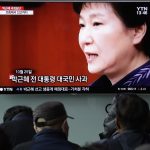corporate reorganizations at the time of the health and economic crises prohibitions of dismissal, limits, exceptions and doubts of constitutionality
In this long interview, Studio Gerardo Vesci & Partners – a well-known and historic Law Firm specializing in Labor Law – examines the purely labor law aspects of the so-called August decree and the limits that have characterized the entire 2020 post Covid in corporate reorganizations.
Can you tell us to operators in the labor sector if it was a hot summer with this proliferation and overlapping of rules?
The August Decree – published close to August 15th – was long awaited to verify on the one hand the continuation of the shock absorbers foreseen for this certainly critical period of health emergency, on the other hand the possibility for companies that needed it to verify the feasibility of plans reorganization.
What are the cases in which reorganisations which also involve redundancies are permitted?
The cases are foreseen in detail and strictly.
First of all, the possibility of framework agreements with the comparatively more representative trade unions at the national level was hypothesized that provide for plans not to oppose the consensual termination and therefore with incentives to leave. The rationale is to protect the free will of an individual to negotiate an exit with an economic incentive and at the same time, the law expressly provides, the right to NASPI (which is generally linked to the so-called involuntary unemployment).
Furthermore, the cases in which the withdrawal is justified by a definitive cessation of business activity without continuation have been expressly excluded from the limits and prohibitions. Therefore, following the Liquidation or a Bankruptcy without provisional exercise of the business activity. In the event that the provisional exercise is arranged for a specific business branch, dismissals relating to sectors not included in it are excluded from the ban. And in other cases, does the ban remain?
In the other cases, by analyzing the rule, privileged the principle according to which, before any reorganization need, the use of “Covid” shock absorbers should be evaluated to postpone and verify whether the needs are temporary and solvable.
Therefore, there is still a period of prohibition, however, with movable dates to be calculated case by case.
Do you give furniture?
Yes. While previously with the “Cura Italia” decree and the “Relaunch” decree there were fixed and unique dates on the prohibition of withdrawal for objective reasons and suspension of the inherent procedures, with the “August” decree no specific dates are indicated and immediately perceptible to non-operators in the sector, but an end to the prohibition on dismissals for objective reasons is envisaged, which can be defined as “mobile”.
Can you give us some hypotheses?
HYPOTHESIS A): the conclusion of the ban is linked to the full use of the shock absorbers and the additional 18 weeks granted. The calculation is therefore variable.
HYPOTHESIS B): the end of the ban is linked to the full enjoyment of the contribution exemption provided for by art. 3. In this case, the deadline can be obtained by doubling the time of the shock absorbers used between May and June.
And the company that has not requested anything in terms of shock absorbers is still bound?
It is a peculiar and debated case. In this case, the first interpretations presuppose that the Legislator intended to interpret this company choice as an implicit admission that it does not have the need for reorganizations and urgent difficulties. This is inferred from the fact that the ban still applies and is linked to the deadline for the use of the COVID Fund and therefore to 31/12. But in reality the reorganisations, especially the “micro” ones that concern single positions and mini departments, are not necessarily linked to a corporate crisis and the jurisprudence has largely overcome the concept that the objective reason for dismissal must be linked to a “crisis”.
In this way there is a boomerang effect: a company that has not asked for “help” is not free in self-determination and reorganization.
Concluding this brief analysis, we can speak of limits to the freedom of enterprise and the exceptional and temporary compression of art. 41 of the Constitution?
It is certainly a peculiar phase in which companies are asked to postpone, to wait. One wonders if freezing and postponing the reorganizations, with costs related to shock absorbers, was the only conceivable solution. If the funds could alternatively be placed on an increase in the values of the unemployment benefit so as to protect the
employees – with greater protections and higher values for workers in the event of involuntary unemployment – and at the same time allowing reorganizations to companies.
It is not said in fact























































